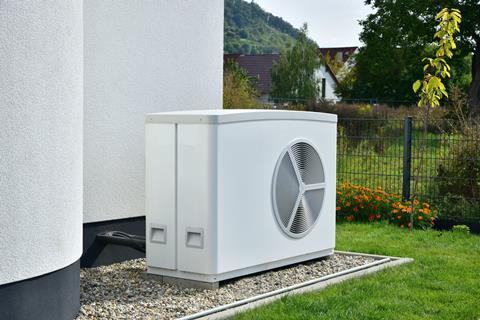Public in the dark and lacking direction over heat pump policy, cross-party committee report claims
The government’s proposals to replace gas boilers with heat pumps lack “clear direction”, MPs have said. A report produced by the cross-party Business, Energy and Industrial Strategy Committee said current policies are not ambitious enough.
Ministers have said that they want to see at least 600,000 heat pumps installed in UK homes each year by 2028. The heat and buildings strategy, published by the government last year, also said that no new gas boilers should be installed in buildings after 2035.
But the report said that there was “still a lack of specific, strategic action” to reach those goals.

It called for the government to set a clear date in law for banning gas boilers, and said that the government’s current “signalling” failed to give industry and consumers a clear date to work towards.
Darren Jones, the committee’s chairman, was quoted by the BBC as saying that replacing gas boilers was a “huge task and we are not making nearly enough progress”.
Bean Beanland, director of growth and external affairs at the Heat Pump Federation, said the trade body agreed with the committee’s report “almost without exception”.
He said it “makes clear that rapid development of a heat decarbonisation sector deal must be a priority.
“This needs to include policy direction for the 30 years through to Net Zero 2050 and a domestic heat technology roadmap that has been developed in full collaboration with industry and crucially consumer groups.”
Ground Source Heat Pump Association chair Laura Bishop added that the UK’s net zero ambitions “will be hard to achieve” without heat pumps.
She said: “The pace of change now needs to pick up and firm policy measures must be put in place.
She added: “Undoubtedly, it’s a complex and challenging task but it can be met through specific policy instruments and through greater collaboration with government – central, devolved, regional and local, the heating industry, trades unions and importantly the customer.”
The MPs’ report also said that more needed to be done to prepare the public for the sweeping changes in how they heat their homes over the next decade.
It said: “While the volatility of the gas market is exposing families to ever higher heating bills, more needs to be done to explain to the public why, how and when their heating systems will be required to change and the potential costs and benefits this transition may bring.”
Bishop said that households across the country need “greater assurance” about the cost and environmental benefits of heat pumps, and the practicalities of switching to the devices from gas boilers.
Heat pumps work by absorbing heat from either the air or the ground and using electricity to increase the temperature to levels suitable for home heating. But for some properties the devices can require significant alterations to the existing infrastructure, such as piping and water tanks.
The business department told the BBC that its existing plans, which include £5,000 grants for heat pumps, would incentivise people to install low-carbon heating systems “in a simple, fair and cheap way”.
A BEIS spokesperson said: “With industry, we are aiming for big cost reductions of between a quarter and a half by 2025 as the heat pump market expands and technology develops.”
The MPs also dismissed hydrogen as a viable option for replacing gas boilers. Jones said his concerns around the gas included supply, distribution, changes to heating networks and alterations to pipes and valves in homes.
Unlike fossil fuels, hydrogen emits no greenhouse gases when combusted, meaning that it could become a very low or zero carbon fuel if industrial processes to produce it are decarbonised.
The government’s hydrogen strategy, published last autumn, said that ministers do not foresee more than 70,000 out of the UK’s 28 million homes using hydrogen by 2030.



























No comments yet